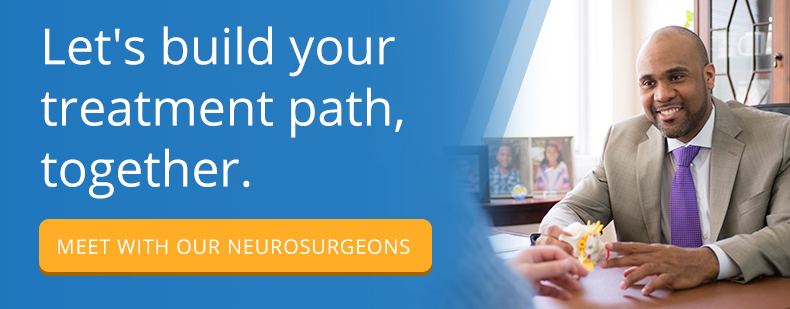Neurological disorders are among the most common health conditions in the world, and these diseases and abnormalities of the brain, spine and nervous system have a number of different causes. Many neurological disorders can be treated with medication or other nonsurgical therapies, but in some situations, surgery can be the best option for resolving an issue that causes neurological symptoms.
If you’ve been referred to a neurosurgeon in Ocean County for treatment of a neurological disorder, it’s important to find the right specialist for your condition. Here’s a rundown of things to look for when you’re searching for a neurosurgeon in Ocean County who can provide the care and comfort you need.
What Conditions Can Neurosurgeons Treat?
A neurological disorder can be any one of more than 600 different diseases and conditions that affect the brain, spine and the central and peripheral nervous systems. These include chronic conditions such as Parkinson’s disease, epilepsy, and multiple sclerosis, nerve pain and damage from conditions such as diabetes, and abnormalities and blockages in the blood vessels and nerves. Neurological disorders can also be caused by events such as stroke or trauma, such as a blow to the head that results in concussion or traumatic brain injury.
Many of these conditions can be managed by medications or other treatments like physical therapy, and in those situations, a patient’s care is typically diagnosed and managed by a neurologist – a medical doctor who specializes in treating neurological conditions. But when symptoms are caused by a physical problem, such as a clogged artery, tumor or structural abnormality in the brain, a referral might be made to a neurosurgeon for evaluation and treatment.
Neurosurgeons are highly trained to perform procedures ranging from minimally invasive endoscopic surgery for a number of different cerebrovascular problems to standard “open” surgeries to remove tumors and abnormal bone or tissue. But they can also work with patients to manage a number of conditions without surgery, and consult with other members of a patient’s care team, including neurologists and primary care physicians, to develop comprehensive treatment plans that may or may not include surgery at some point.
Finding the Right Neurosurgeon
Finding the right neurosurgeon can be challenging, but it plays a key role in your treatment and recovery. Your primary care doctor or your neurologist can provide you with referrals, but you can also search for a doctor on your own. Everyone has a different idea of what an ideal doctor should be, but in general, you’ll want to consider essential factors such as a candidate’s education and qualifications, the facilities they work with, and your own level of comfort not only with the surgeon’s expertise but also their ability to communicate clearly and respectfully with you and the other members of your care team.
Relevant, Recent Education and Training
Consider a prospective neurosurgeon’s education and additional training in the relevant medical specialties. Neurosurgeons typically undergo longer residencies and more intensive training in advanced surgical techniques than many other medical specialties. As you review a surgeon’s profile, look for additional training in subspecialties related to your particular condition. For example, a board-certified neurosurgeon may also have additional qualifications in a subfield such as neuro-oncology, or additional training in a particular surgical technique, such as carotid endarterectomy, used to treat blocked arteries in the brain.
Look for information such as the number of years the surgeon has spent in neurosurgical practice, and dates of most recent training in procedures related to your condition. That can help to show whether the neurosurgeon you’re considering has a high level of experience and expertise in new and innovative treatment options. Look also for information on how many procedures the neurosurgeon has performed to treat your condition.
It can also be helpful to contact the state medical board for information about whether a prospective neurosurgeon has ever received disciplinary action, faced a malpractice action or received complaints from patients.
Professional Affiliations and Facilities
A neurosurgeon’s affiliations and the facilities where procedures are performed can also play a role in your decision. The doctor’s profile can reveal affiliations with specific hospitals and research institutions, as well as memberships in professional organizations related to neurosurgery in general as well as specific subspecialties. It’s also possible to locate a neurosurgeon’s published research in medical journals and databases for more information on the doctor’s expertise and interest in your particular condition.
You may also want to consider the qualities of facilities where a neurosurgeon performs procedures. Depending on the nature of your condition and treatment options, you may want to learn whether a hospital or clinic has staff and facilities dedicated to neurosurgical care, and who will be assisting the neurosurgeon during the procedure and in your post-operative care. Patient reviews for both neurosurgeons and facilities are available on a variety of review sites, and it can be helpful to read about the experience of others with conditions similar to yours.
Communication and Compassion
Along with expertise, your neurosurgeon should inspire confidence and help you feel comfortable. If possible, arrange a consultation with prospective neurosurgeons to discuss your condition and possible treatment options. The neurosurgeon should be willing to listen to your questions and concerns and respond honestly and respectfully and to discuss all the available treatment options and their risks and benefits. The surgeon should also learn as much as possible about you and your condition and give you a clear idea of what to expect during and after any procedure you might have.
If you’re living near the Jersey Shore, finding the right neurosurgeon in Ocean County is an important step in your treatment – and knowing what to look for can help. The neurosurgeon you choose should have the expertise and compassion to work with you and the rest of your health care team to plan for your best treatment and recovery.


